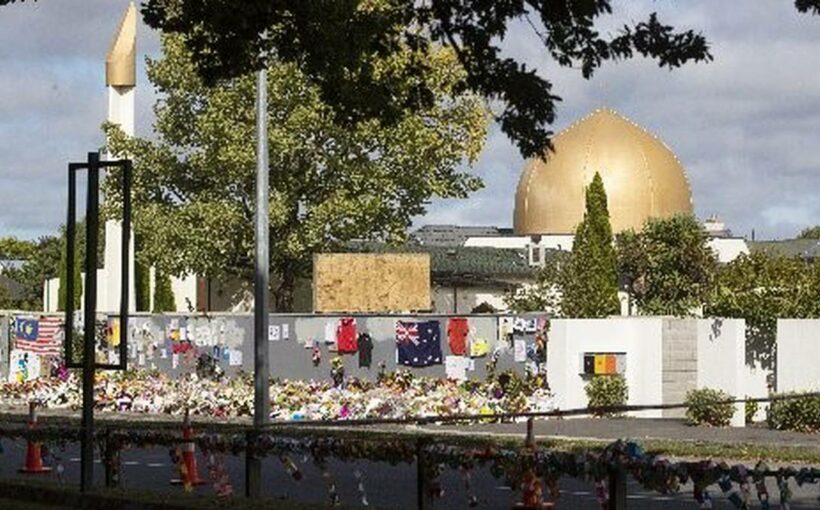A man accused of threatening to car bomb two Christchurch mosques on the March 15 terror attack anniversary now faces new charges that he repeatedly supplied the Australian terrorist’s manifesto.
The 27-year-old man was charged with threatening to kill people at the Al Noor and Linwood mosques just ahead of the second anniversary of the terror attack that killed 51 people at the two city mosques on March 15, 2019.
After he was arrested and charged, he appeared at Christchurch District Court on March 5 where he was granted interim name suppression.
Charging documents allege the man made the online threats on February 28. The charge carries a maximum penalty of seven years.
Today, he again appeared in court from custody to face seven new charges.
It’s alleged that he supplied an objectionable publication, namely Brenton Tarrant’s manifesto, to another person on five occasions on February 21, 2021 – and again on February 26 and March 2. Those charges carry a maximum penalty of 14 years’ imprisonment, with the manifesto being banned after the attacks.
This morning, the man also entered not guilty pleas to all charges – including to the freshly-laid ones – and elected to stand trial by jury.
He was remanded in custody to April 22 by Judge Tony Couch who directed that interim name suppression will continue for now.
Since the man’s arrest, which came after tip-offs from the public, police and spy agencies have been criticised for failing to detect the threats themselves.
But they have all responded by saying the job is too big to manage alone – and that the public plays a large role in helping alert them to threats – so they can assess the information and react appropriately.
The Royal Commission of Inquiry into the March 15, 2019 terrorist attack criticised security agencies for having previously deployed “an inappropriate concentration of resources” probing Islamic extremism whereas white supremacy had been considered just a fringe threat.
It resulted in SIS director Ggneral Rebecca Kitteridge apologising to the Muslim community and stress that “significant areas” needed change.
Also in the wake of the attacks, police launched a specialised unit utilising artificial intelligence (AI) technology to scour New Zealanders’ Facebook, TikTok, Instagram and other social media channels, as well as online platforms such as 4chan.
Source: Read Full Article

/cloudfront-ap-southeast-2.images.arcpublishing.com/nzme/QU65PT7BMWRTMJKNQWV2TX4PJY.jpg)
/cloudfront-ap-southeast-2.images.arcpublishing.com/nzme/7H665TXIGXN2HIHZ4HIWI4GQW4.jpg)